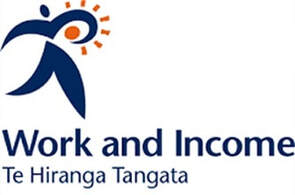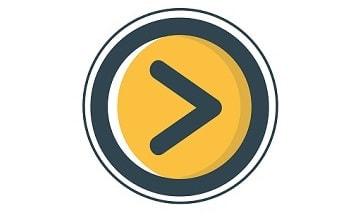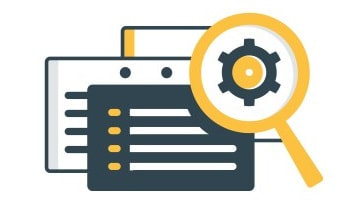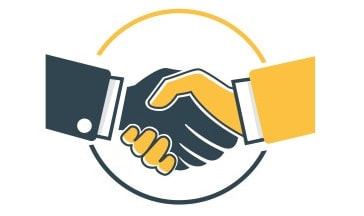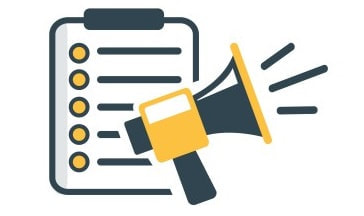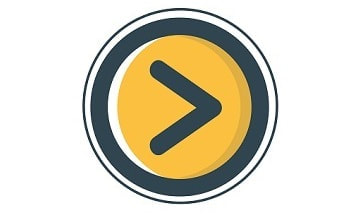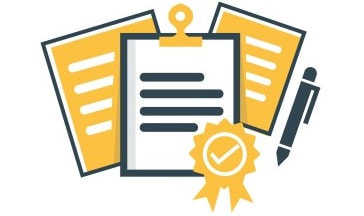Accommodation Supplement 2023 & 2024 - Rates and Guidance
Apply for an Accommodation Supplement with confidence using our comprehensive guide. We explain your eligibility, entitlements, obligations, and must-know tips.
Updated 24 December 2023
The Accommodation Supplement is a type of financial assistance available from Work and Income to help with the costs of accommodation. It is paid in addition to a main benefit (like Jobseeker Support or the Supported Living Payment), but you can also receive it while you are working.
How much you can get depends on how much you pay for your accommodation costs and your level of income and assets, and like most assistance, is assessed based on you and your partner’s situation.
How does Accommodation Supplement fit in with other Work and Income support?
New Zealand has as three-level benefit system, with main benefits like Jobseeker Support or the Supporting Living Payment forming the foundation of the financial assistance you are entitled to. Extra benefits like Accommodation Supplement, Disability Allowance and Temporary Additional Support are paid on top of these main benefits to help with specific extra costs.
Our guide is comprehensive and designed to help you understand your eligibility, entitlements and obligations. We cover:
The Accommodation Supplement is a type of financial assistance available from Work and Income to help with the costs of accommodation. It is paid in addition to a main benefit (like Jobseeker Support or the Supported Living Payment), but you can also receive it while you are working.
How much you can get depends on how much you pay for your accommodation costs and your level of income and assets, and like most assistance, is assessed based on you and your partner’s situation.
How does Accommodation Supplement fit in with other Work and Income support?
New Zealand has as three-level benefit system, with main benefits like Jobseeker Support or the Supporting Living Payment forming the foundation of the financial assistance you are entitled to. Extra benefits like Accommodation Supplement, Disability Allowance and Temporary Additional Support are paid on top of these main benefits to help with specific extra costs.
Our guide is comprehensive and designed to help you understand your eligibility, entitlements and obligations. We cover:
- Accommodation Supplement Summary and Eligibility
- What costs can I get help with under the Accommodation Supplement?
- Understanding how entitlement is affected by both your (and your partner's) income and assets
- Must-Know Accommodation Supplement Facts
- Accommodation Supplement Frequently Asked Questions
- Accommodation Supplement Application Process
- Tips for approaching Work and Income to apply for an Accommodation Supplement
Accommodation Supplement Benefit Summary
- The Accommodation Supplement is intended to help with the costs of accommodation - this means homeownership costs, rent or board.
- To work out your entitlement, Work and Income gathers your specific costs, looks at your financial situation and calculates a weekly rate of payment. This payment can continue for as long as you remain eligible for assistance - there is no time limit and no obligation to get to a point where you no longer require assistance.
- You need to tell Work and Income when your situation changes, and every twelve months you'll be asked to renew the information needed to assess your entitlement. If you don't respond to this annual review, your payments can be stopped.
- The amount you can receive is partly affected by where you live. Work and Income define four specific areas in New Zealand, and the maximum rates of payment vary between areas. The rates are reviewed each year.
- The current rates of payment are listed on the Work and Income website here.
- Finding out which "area" you are in is a little more tricky but Work and Income do have a table online.
- Don’t be put off by the relatively low rates. The payment is intended to contribute to your costs, not cover them completely.
What costs can I get help with under the Accommodation Supplement?
The Accommodation Supplement is designed to help with costs specifically related to accommodation - this means home ownership costs, rent or board. Work and Income can include a wide variety of costs in the calculation of your accommodation cost. We explain the details of each entitlement below.
1. Accommodation Supplement for Home Ownership Costs
Work and Income can look at a variety of costs when you own your own home. The most common costs are:
Know this: While most people reach the upper limit for payment with just their mortgage, if you have receipts or proof of the other costs its worth including them because it can help with entitlement to further assistance such as Temporary Additional Support. It's worth noting that Work and Income will only help with the portion of a mortgage used to purchase your home - if you have re-borrowed against your house for a car, boat, second home or a holiday, things get a bit more complicated as you have to work out the proportion of your payments that relate specifically to your home.
A lot of local authorities offer a rates rebate scheme for those on low incomes or who can’t afford their rates. If you receive a rebate Work and Income will include your rates, less the amount of rebate you received.
To prove how much you pay in order to get an Accommodation Supplement, Work and Income will want to see original documentation of each cost - this could include mortgage documents, rates bills, water rates or other invoices.
- Mortgage repayments (interest and principal repayments on mortgages to purchase a house)
- Body corporate fees
- Local authority rates
- Water rates
- House insurance premiums (excluding contents insurance)
- Mortgage protection insurance or life insurance (where this is compulsory for the mortgage)
- Essential repairs and maintenance costs to the home
Know this: While most people reach the upper limit for payment with just their mortgage, if you have receipts or proof of the other costs its worth including them because it can help with entitlement to further assistance such as Temporary Additional Support. It's worth noting that Work and Income will only help with the portion of a mortgage used to purchase your home - if you have re-borrowed against your house for a car, boat, second home or a holiday, things get a bit more complicated as you have to work out the proportion of your payments that relate specifically to your home.
A lot of local authorities offer a rates rebate scheme for those on low incomes or who can’t afford their rates. If you receive a rebate Work and Income will include your rates, less the amount of rebate you received.
To prove how much you pay in order to get an Accommodation Supplement, Work and Income will want to see original documentation of each cost - this could include mortgage documents, rates bills, water rates or other invoices.
2. Accommodation Supplement for Rent Costs
- When looking at rent costs, Work and Income can include the amount you actually pay in rent, plus any water usage charges too.
- It's important to note that if you are in a flatting situation you can only include the amount you actually pay yourself - not the full amount for the house.
- To confirm how much you pay, Work and Income will want to see a tenancy agreement or a Flat Sharing agreement if you have one. Often, a hand-written letter from the head tenant or the person you pay the rent to will do.
- Important: If you are flatting, it is strongly recommend that you have a house-sharing agreement to document and agree who will pay for what. House sharing isn’t covered by Tenancy Services, but a written agreement will help if you want to take a flatmate to the disputes tribunal. There is an example agreement here.
3. Accommodation Supplement for Board Costs
- If you pay Board, Work and Income consider that a proportion of the payment covers costs like power, phone, internet and water, and that food is also included.
- In calculating your entitlement to Accommodation Supplement, Work and Income will only consider 62 per cent of your Board cost as an accommodation cost.
- We strongly recommend you avoid paying Board if you can help it - we outline why in more detail below in our Tips for approaching Work and Income.
- To confirm how much you pay, Work and Income will often ask for a letter from the person you pay Board to.
Understanding how entitlement is affected by both your (and your partner's) income and assets
The Accommodation Supplement is one of the types of assistance available from Work and Income that takes both assets and income into account. We explain these in detail below:
1. Accommodation Supplement Asset Testing
Asset limits, and understanding what counts as an asset
Work and Income has a remarkably broad definition of what a “cash asset” is. You can find their full policy online. Essentially it includes all the things you would expect like cash in the bank and investments, but it excludes equity in the home you live in or a car you own for private use.
Net equity in boats, caravans, investment properties and businesses can be included as a “cash asset” under certain circumstances. If you think this might affect you, make sure you provide all the documentation you have, including valuations and loan documents so they can make an accurate assessment.
How do assets affect payment?
Someone not receiving a main benefit may be able to receive the full rate of Accommodation Supplement entitlement if their assets are less than:
For every $100 in assets over these amounts, Work and Income adds $1 to your weekly income to adjust your entitlement. This adjustment isn’t made for people receiving a main benefit.
The top limit for assets for both people receiving a benefit and people not receiving a benefit is:
This means that if you have assets in excess of these amounts, you won’t be eligible for an Accommodation Supplement.
Work and Income has a remarkably broad definition of what a “cash asset” is. You can find their full policy online. Essentially it includes all the things you would expect like cash in the bank and investments, but it excludes equity in the home you live in or a car you own for private use.
Net equity in boats, caravans, investment properties and businesses can be included as a “cash asset” under certain circumstances. If you think this might affect you, make sure you provide all the documentation you have, including valuations and loan documents so they can make an accurate assessment.
How do assets affect payment?
Someone not receiving a main benefit may be able to receive the full rate of Accommodation Supplement entitlement if their assets are less than:
- $2,700 for a single person
- $5,400 for a sole parent, or a married, civil union or de facto couple
For every $100 in assets over these amounts, Work and Income adds $1 to your weekly income to adjust your entitlement. This adjustment isn’t made for people receiving a main benefit.
The top limit for assets for both people receiving a benefit and people not receiving a benefit is:
- $8,100 for a single person
- $16,200 for a sole parent or a married, civil union or de facto couple
This means that if you have assets in excess of these amounts, you won’t be eligible for an Accommodation Supplement.
2. Accommodation Supplement Income Testing
Income Limits
If you are receiving a main benefit, income really isn't an issue - even if you do some part-time work. If you aren’t receiving a benefit, there is an upper limit to the amount you can earn and still receive an Accommodation Supplement.
Currently, for a single person living in Auckland, the limit is $67,756 per annum or just under $116,844 per annum for a couple with children. You can see the full details online - these figures are reviewed each year, as well as the different areas which influence the limits.
If you are receiving a main benefit, income really isn't an issue - even if you do some part-time work. If you aren’t receiving a benefit, there is an upper limit to the amount you can earn and still receive an Accommodation Supplement.
Currently, for a single person living in Auckland, the limit is $67,756 per annum or just under $116,844 per annum for a couple with children. You can see the full details online - these figures are reviewed each year, as well as the different areas which influence the limits.
4 Must-Know Accommodation Supplement Facts
Monitoring income changes week by week can be difficult
|
Understand the differences between annual income assessment vs weekly
|
You can’t get an Accommodation Supplement if you live in Social HousingYou generally can’t receive an Accommodation Supplement if you live in social housing or a Housing New Zealand house. That’s because the Government is already subsidising your accommodation costs.If you are struggling to cope with payments its a good idea to contact your housing provider or Housing New Zealand to talk through the issues. You may need to update your income details with them if you have recently finished work and this can help to reduce costs.
This doesn’t mean KiwiBuild etc. Social Housing is housing provided to low-income tenants at vastly reduced rents. In the past, it was just Housing New Zealand, but now a number of housing providers are funded to offer a wrap-around support service for families who are struggling. |
There is a minimum cost you have to pay yourself
|
Accommodation Supplement Frequently Asked Questions
Applying for the Accommodation Supplement is easy, but you're likely to have questions. Our FAQs walk you through the most common concerns.
If I receive rent or board payments, how does this affect me?
If you rent out a room, this will reduce the amount you are entitled to. If you are the head tenant (i.e. only your name on the tenancy agreement), then your cost is reduced by the amount you receive. If you are a homeowner, then any rent you receive is counted as income.
Work and Income generally ignore any income from the first two boarders you have, because in most cases they are members of family or whānau. But if you are running a boarding house or have a lot of boarders, Work and Income might investigate further.
Work and Income generally ignore any income from the first two boarders you have, because in most cases they are members of family or whānau. But if you are running a boarding house or have a lot of boarders, Work and Income might investigate further.
Can I get the Accommodation Supplement for my rental property?
No, the Accommodation Supplement can only be paid for the house that you and your family live in. If you have a rental property, it's quite likely the equity in the property will be above the asset limit for this type of assistance anyway. If you are in any doubt, make an application.
Can I get an Accommodation Supplement if I am a student?
Students usually receive a different type of assistance called an Accommodation Benefit - but it’s paid at a much lower rate (due to the assumption most students are living at home with family or have other support). If a student has a partner who isn’t a student, the partner can receive an Accommodation Supplement with various deductions depending on what their student-partner receives.
My home is owned by my family trust - do I qualify for an Accommodation Supplement?
If your home ownership situation is a bit complex and involves (your own) family trust, or a business or relatives as well, then your application can get a bit complicated.
Work and Income will likely want to see the Trust Deed (if you are a settlor, trustee or beneficiary) and potentially the trust’s annual return. This is especially true if you have previously owned the home which you have gifted to a trust. Sometimes other Trustees get upset about this requirement, but the reality is Work and Income can’t help unless they can fully assess your situation.
Complex ownership can slow things down too - if you still own your house with your ex-partner, for example, you could expect your costs to be halved - unless you have a divorce agreement or some sort of legal documents to show differently.
General Rule: If your situation is complex, bring as much documentation as you can to support your situation - ideally before Work and Income ask for them.
Work and Income will likely want to see the Trust Deed (if you are a settlor, trustee or beneficiary) and potentially the trust’s annual return. This is especially true if you have previously owned the home which you have gifted to a trust. Sometimes other Trustees get upset about this requirement, but the reality is Work and Income can’t help unless they can fully assess your situation.
Complex ownership can slow things down too - if you still own your house with your ex-partner, for example, you could expect your costs to be halved - unless you have a divorce agreement or some sort of legal documents to show differently.
General Rule: If your situation is complex, bring as much documentation as you can to support your situation - ideally before Work and Income ask for them.
Accommodation Supplement Application Process
Work and Income’s Check what you might get tool is a great place to start. Even if you only qualify for a small amount each week, it is well worth applying. Even $10 per week adds up over a year. The actual application process varies depending on your current situation.
If you are applying for a main benefit as well:
If you already receive a main benefit:
If you aren’t receiving a benefit:
Online vs Offline Applications: Work and Income have experimented over the years with a totally online application process - you might get this option and its recommended unless your situation is complicated.
If you are applying for a main benefit as well:
- An application for Accommodation Supplement is included with your main benefit application - you just need to provide details and proof of your costs, and fill out the Accommodation Supplement section in the application form.
- Any payments will start with your main benefit payment and will be backdated to the same start date.
If you already receive a main benefit:
- You can apply online, or call and make an appointment to apply. Generally, it’s a very simple application form - you just need to provide proof of assets, ID and proof of your costs.
- Your entitlement is usually backdated to when you first made contact to apply.
If you aren’t receiving a benefit:
- If you apply as a “non-beneficiary” (i.e. you don’t receive a main benefit), then you generally need to complete an application form, providing verification of your ID, costs and financial situation and attend an appointment with Work and Income.
- Your entitlement is generally backdated to the date you initially made contact to apply.
Online vs Offline Applications: Work and Income have experimented over the years with a totally online application process - you might get this option and its recommended unless your situation is complicated.
Tips for approaching Work and Income to apply for an Accommodation Supplement
1. Don’t pay Board if you can help it
2. KiwiSaver might affect your entitlement
3. You should have some income to declare (even though you don’t have to)
4. Essential Repairs and Maintenance
5. Help if you are behind in your payments
6. Apply for Temporary Additional Support
Do you have tips about the Accommodation Supplement that you would like to share? Contact our research team.
- As we outlined above, Work and Income consider that a Board payment includes all your utilities and food, so make a deduction from the amount you have to pay in calculating your entitlement.
- If at all possible, ask the person you pay Board to provide a breakdown of what you pay. This could just be a simple hand-written note that says: “(Your Name) pays me $200 per week which includes $150 for their room and a $50 per week contribution to utilities and food”. In such a situation, Work and Income should then assess your costs as $150 per week for rent, rather than 62 per cent of $200, or $124 per week.
- Paying Board can also make it harder to get hardship assistance for food too - you’ll need to explain why, if you are paying for food with your Board payments, you need an emergency food grant.
2. KiwiSaver might affect your entitlement
- At the moment Work and Income’s policy is that any money “locked in” to KiwiSaver is not counted as a cash asset, but as soon as you receive a payment or if you can access KiwiSaver the value of this investment (i.e. through a KiwiSaver Hardship application), it is treated like any other asset.
- There have been instances where this has encouraged people to go out and spend their retirement savings so they can retain their benefit entitlements - which is clearly not the intention.
- We think this policy might change in the future, but for now, it’s something to be aware of. If you turn 65 or become able to access your KiwiSaver investments, you may see your Accommodation Supplement payments stop.
3. You should have some income to declare (even though you don’t have to)
- According to Work and Income policy, you can apply for an Accommodation Supplement without declaring any income - but it's going to raise some “red flags”.
- Work and Income know how much you pay each week and know that your Accommodation Supplement will only cover a proportion of this so they’ll be asking questions about how you are paying the rest of your costs (not to mention other living costs like food, utilities and travel costs).
- It’s honestly better to tell the truth about cash-in-hand jobs, casual work, selling things on TradeMe, or other sources of income than it is to hope that Work and Income won’t notice.
- Work and Income and IRD do share information - but not to this level (IRD will tell Work and Income about your earnings, but not the other way around).
4. Essential Repairs and Maintenance
- As a homeowner, you can add the annual costs of essential repairs and maintenance to your accommodation costs - and this is often an overlooked goldmine to increase your entitlement.
- A couple of thousand dollars spent replacing a rotten deck, or the cost of new insulation can quickly add up to a significant amount per year. This is then divided by 52 and added to your accommodation costs.
- Work and Income will want to see receipts, and are fairly strict on what they consider “essential”. A brand new Italian Marble bathroom probably won’t get included - but if the bathroom was old and rotten, then there is a good chance many of the costs will be.
- This is especially useful for people who don’t have mortgage costs as it might otherwise increase their entitlement.
5. Help if you are behind in your payments
- While not strictly related to Accommodation Supplement, Work and Income can offer assistance if you are behind in your rent payments are likely to be evicted. This generally takes the form of a loan which is repaid either by automatic payment, or deductions from your benefit entitlement.
- You’ll need to meet an income and asset test to qualify, but it can help you catch up.
- Work and Income generally can’t help with mortgage payment arrears - you should talk to your bank if you are getting behind - they can usually find a way to help.
6. Apply for Temporary Additional Support
- Temporary Additional Support is another type of weekly payment you can get in addition to your main benefit and Accommodation Supplement. You can get it if you don’t receive a benefit too.
- Work and Income looks at all of your costs and all of your income, and may provide a small top-up for a short period of time while you get things sorted out. You need to reapply for it every 13 weeks, and explain what steps you’ve taken to improve your situation.
- If you are moving onto a benefit for the first time or struggling to make ends meet then apply - every little bit helps.
Do you have tips about the Accommodation Supplement that you would like to share? Contact our research team.

